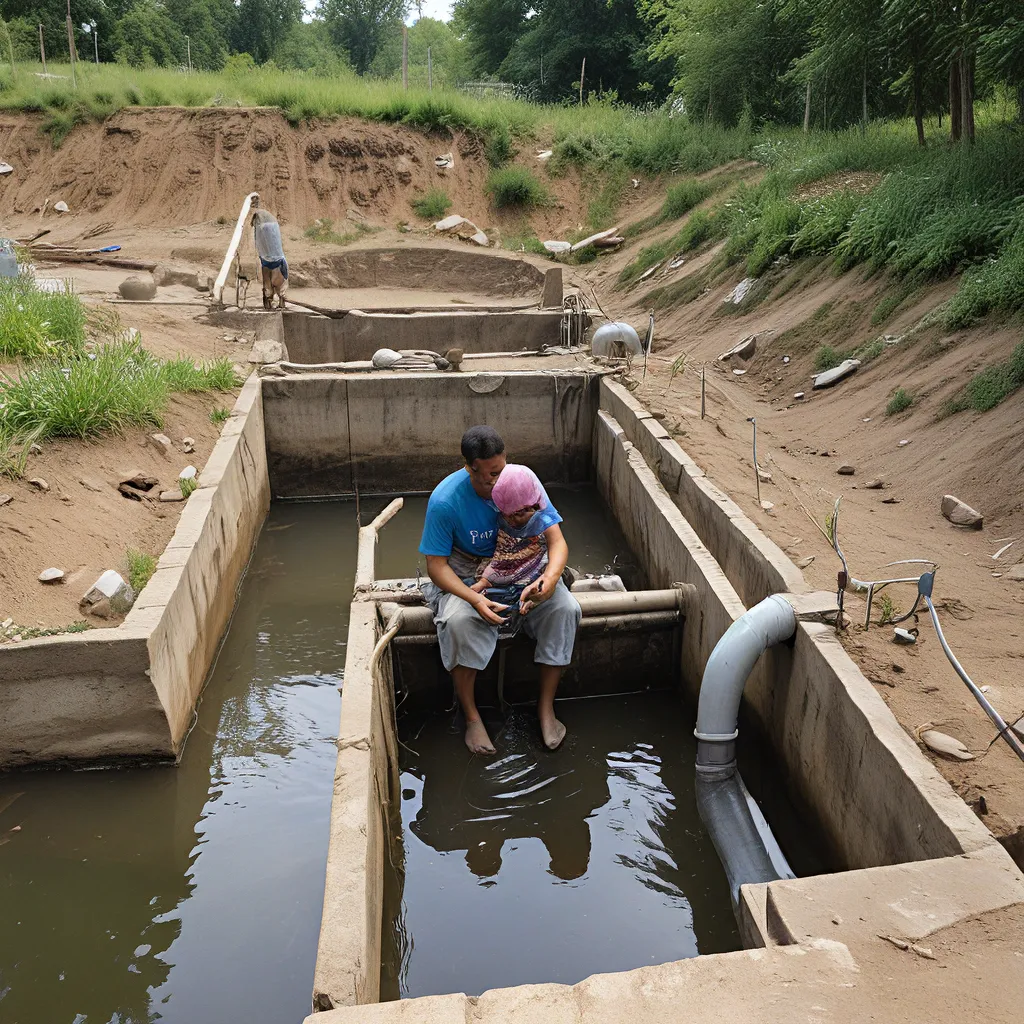
The Unsung Heroes of Public Health and Equity
As I step into the bustling wastewater treatment plant, the air is thick with the scent of hard work and dedication. This isn’t just any ordinary facility – it’s the beating heart of our community’s public health and environmental stewardship. And at the center of it all are the men and women who have committed their careers to ensuring everyone has access to this essential service.
You see, wastewater treatment is often an overlooked aspect of modern life, but the truth is, it plays a vital role in maintaining the delicate balance of our ecosystems and protecting the vulnerable communities that depend on them. It’s not just about flushing toilets and washing dishes – it’s about safeguarding our waterways, preserving precious natural resources, and creating opportunities for people of all backgrounds to thrive.
Confronting Inequities in Water Access
Growing up, I never really gave much thought to where my water came from or where it went. It was just there, always ready to quench my thirst or rinse away the day’s grime. But as I’ve grown older and learned more about the world, I’ve come to realize that this simple luxury is not equally shared by all.
Across the country, there are communities – often low-income and predominantly minority – that lack access to safe, affordable drinking water and wastewater services. These are the places where aging infrastructure, historical discrimination, and economic challenges create a perfect storm of inequity. Families forced to choose between paying the water bill or putting food on the table. Neighborhoods where the threat of sewage backups or contaminated groundwater looms large.
It’s a sobering reality that we must confront head-on. Because water is not just a basic necessity – it’s a fundamental human right. And by addressing these disparities, we have the power to transform lives, strengthen communities, and build a more just and equitable future for all.
Bridging the Divide Through Collaboration
Fortunately, there are organizations and utilities like the U.S. Water Alliance’s Water Equity Network that are leading the charge in this vital mission. By bringing together a diverse array of stakeholders – from water utility leaders to community advocates to environmental justice champions – they’re working to identify the root causes of water inequity and implement bold, innovative solutions.
I had the chance to speak with one of the Network’s members, Robert Tovar, who shared an inspiring perspective on the power of collaboration:
“When we come together across sectors – water, housing, transportation, health, and beyond – we unlock incredible potential to create lasting, systemic change. It’s not just about fixing the pipes or upgrading the treatment plants. It’s about empowering marginalized communities, giving them a voice in the decision-making process, and ensuring they reap the full benefits of these essential services.”
And that’s exactly what the Network is doing. From workforce development initiatives that create career pathways for underrepresented groups, to affordability programs that keep water bills manageable, to climate resilience strategies that protect the most vulnerable – they’re tackling the challenge of water equity head-on, one community at a time.
Redefining the Role of the Wastewater Utility
As I delve deeper into the work of these visionary organizations, I can’t help but be inspired by the transformative power of the humble wastewater utility. These entities, often seen as mere service providers, are stepping up to become anchor institutions – cornerstones of their communities that drive social, economic, and environmental progress.
Take the example of the King County Wastewater Treatment Division in Washington state. By embedding the principles of equity and social justice into their strategic planning and operations, they’re redefining what it means to be a responsible water steward. From conducting equity assessments of their facilities to prioritizing diverse hiring and workforce development, they’re ensuring that the benefits of their work are shared equitably across all segments of the population.
And it’s not just about internal practices – these utilities are also forging deep connections with the communities they serve. By actively engaging residents, listening to their needs, and co-creating solutions, they’re building trust, fostering empowerment, and breaking down the barriers that have historically kept marginalized groups on the sidelines.
The Path to an Equitable Water Future
As I reflect on all I’ve learned, I can’t help but feel a renewed sense of hope and determination. Water equity is not just a lofty goal – it’s a necessary and achievable reality. And the wastewater industry is at the forefront of this transformative movement, paving the way for a future where everyone, regardless of their zip code or socioeconomic status, can access the clean, safe, and affordable water services they deserve.
Of course, the journey ahead is not without its challenges. Aging infrastructure, climate change, and systemic inequities are daunting obstacles that will require sustained effort and collaboration. But with visionary leaders, innovative solutions, and the unwavering commitment of dedicated professionals like those I’ve encountered, I believe we can overcome these hurdles and create a more just, resilient, and prosperous water future for all.
So, the next time you flush the toilet or turn on the tap, I encourage you to think about the unsung heroes who make that simple act possible. And consider how you might lend your voice and support to the crucial work of advancing water equity in your own community. Because when we come together to ensure that everyone has access to this fundamental resource, we’re not just improving public health and the environment – we’re building a more equitable world, one drop at a time.